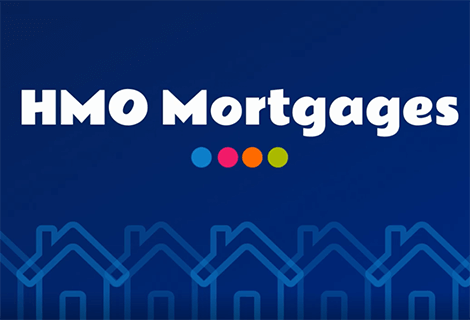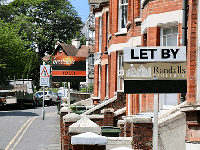What is an HMO?
Houses of multiple occupancy are rental properties that have at least three unrelated tenants living in it. They will share facilities together, such as kitchens and bathrooms.
One of the biggest differences between these properties to standard buy to lets is that several households can live there at one time.
One of the most common examples is student properties. This is where you have multiple people from different households all living together.
These properties are becoming more popular, as the returns can be much higher than traditional buy to lets.
Our experts have a variety of HMO mortgages available that can help you buy or remortgage these properties, allowing you to get your plans underway.
What is an HMO mortgage?
HMO mortgages are a type of borrowing solution that helps you purchase or remortgage a house of multiple occupancy.
These solutions are designed to help landlords, as they are often used for renting out to a group of unrelated people.
Our team are experts at HMO purchases and HMO remortgages, so we have the right products and skills to help you.
Solutions range from £10,000 up to £5m, with both repayment and interest only options available.
If you’d like to enquire, either call 0800 032 3535 or use the online form above.

Do you need HMO housing experience to qualify for a mortgage?
Having experience can be useful when it comes to applying for a mortgage on these properties. This is because it shows that you may be a more reliable borrower. Due to this, it may be easier to get accepted, and you may get lower interest rates.
However, experience is not necessary. It can definitely support your application and make the process easier, but there are still solutions available if you have little or no experience at all in this field.
Even if you’re a first time landlord who doesn’t have any buy to let experience at all, there are still options open to you. Interest rates may, however, be higher to lower the risk to lenders.
Our team has helped many customers (just like you) before, so we have the experience to support you.
Is it a good idea?
Investing in an HMO rental can be a profitable opportunity for landlords. Some of the benefits may include:
- Higher returns – Rental returns can be much higher than traditional buy to lets.
- Lower void periods – It’s unlikely that all your tenants would move out at the exact same time (unless it’s a student property investment where there may be movement around term times). Therefore, there will be less periods when the property is completely vacant.
- Income protection–Even if one tenant misses their rent payments you will still get income from the remaining household members. Whereas, with a standard buy to let property if your tenant misses rent payments you will receive no income at all.
Although these are great benefits, it is also important to consider the possible downsides to these investments. Some of these disadvantages may include:
- More rules – There are more rules around these properties. This means you may need to do more planning to factor in these requirements.
- Higher upfront costs – As these properties can be larger, there may be more work required to get them up to scratch, particularly if it is being let fully furnished. Therefore, you may have higher upfront costs.
- Stricter criteria – Qualifying criteria for these products can be stricter, so it may be harder for you to get approved.
What’s the difference between an HMO and a MUFB?
HMO housing is a type of shared accommodation that consists of tenants who are not related.
Multi-unit freehold blocks, however, are properties that are split into self-contained living spaces (such as apartments, flats and studios), but they are held under one title.
They differ from HMOs in that the facilities are not shared between tenants. Instead, only the person or household living there uses the facilities.
An example of a MUFB could be a house that has been converted into flats. All of the tenants will have their own space to themselves, and they will not need to leave their accommodation to access certain facilities.
If you’re looking into investing in one of these properties you will need to look at options for a multi-unit freehold block mortgage.
Our experts offer mortgage products for both property types, so we may have a solution available that meets your plans.
How do you apply for an HMO mortgage?
Applying for this solution is straightforward. It all starts with a single call or email.
- Simply call 0800 032 3535 or email our experts to submit an enquiry. Alternatively, you can fill out our quick online form above and we will contact you.
- Our advisors will talk you through the best options we have available for your specific circumstances.
- If we find you a product, you decide if it is the right fit for you! If it is, we’ll work with the lender to get your funds sorted.






